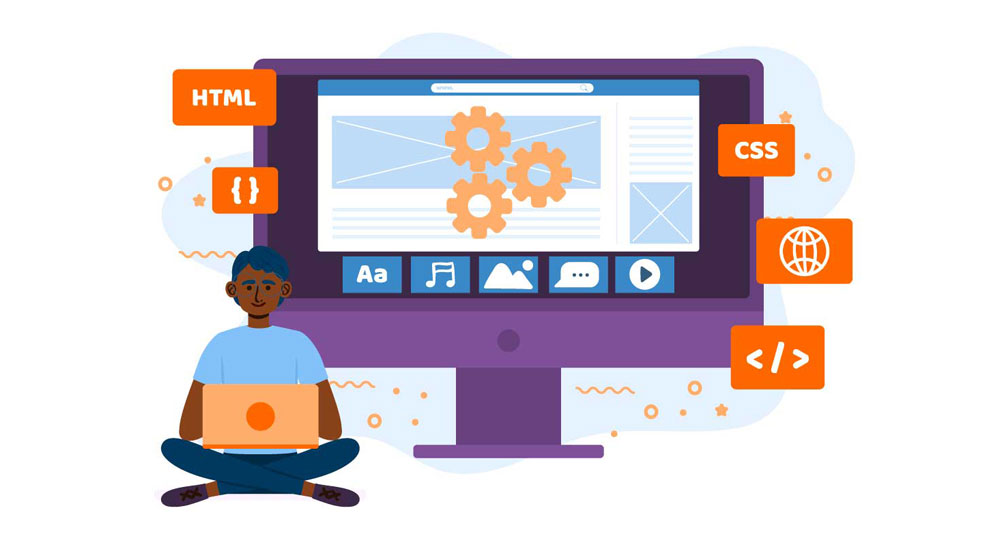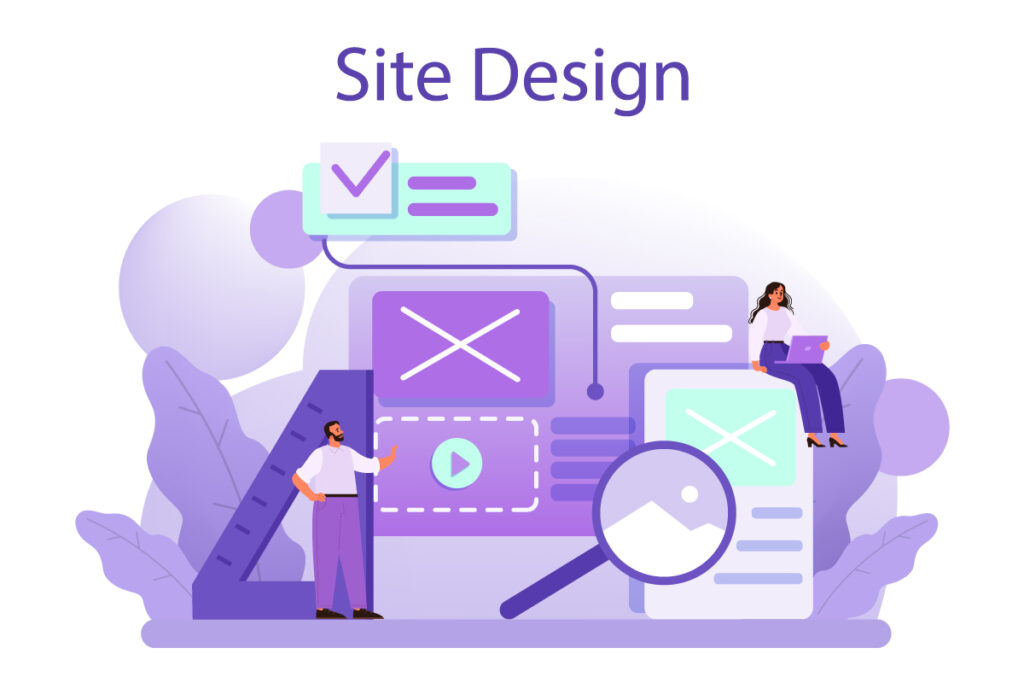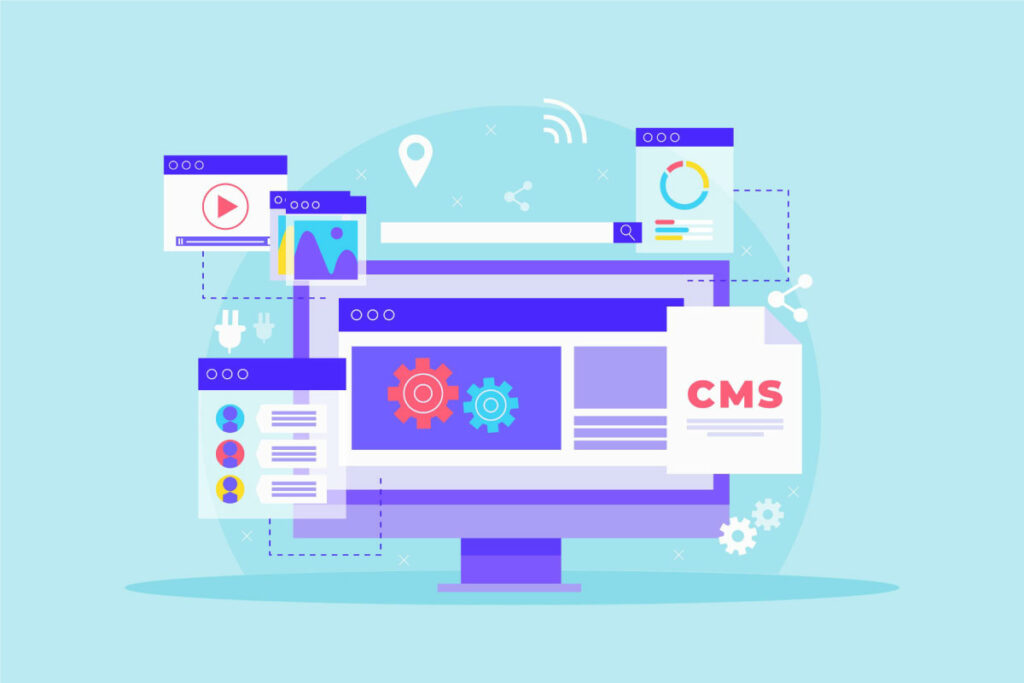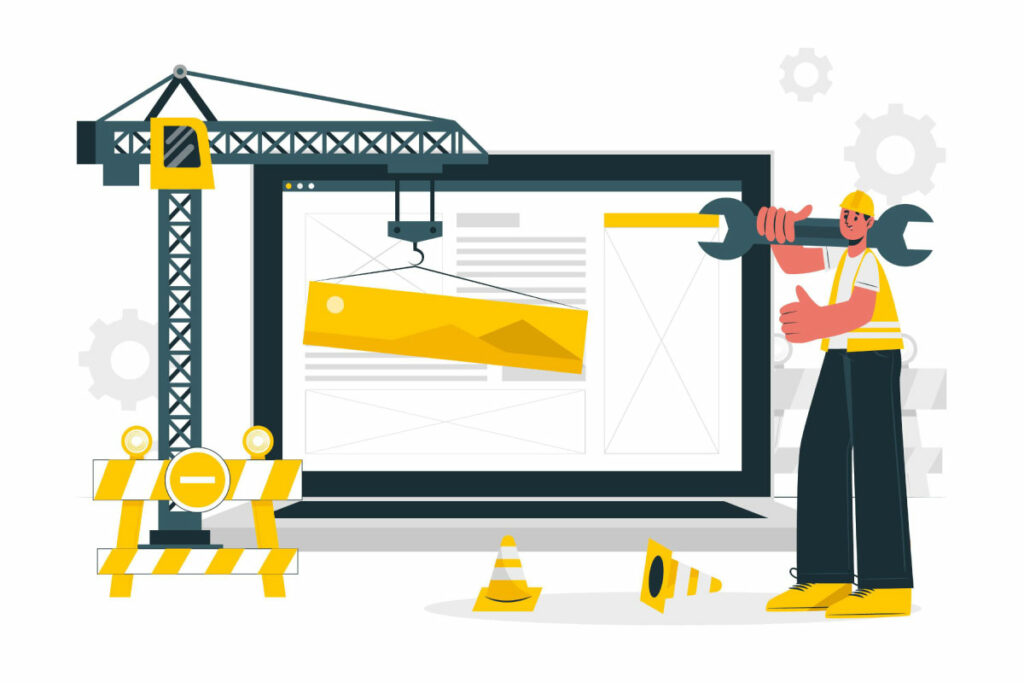
With WordPress being the dominant CMS, powering over 43% of websites, it is evident that WordPress is favored by many businesses and individuals for website creation. According to research by Zippia, over 500 new WordPress sites are created daily. That’s why there is a growing demand for WordPress designers. They are not only proficient in the WordPress platform but can provide valuable assistance in website design, functionality enhancement, and troubleshooting. Whether it’s creating visually appealing layouts or addressing technical issues, WordPress designers ensure that your website stands out from the competition.
Website Design and Function
A WordPress designer can significantly impact the perception of your brand and influence user behavior. As designers, they understand the importance of a well-designed layout, intuitive navigation, and user-friendly interface. By leveraging their knowledge of HTML, CSS, and JavaScript, designers can customize WordPress themes and create stunning websites that align with your brand identity. They collaborate closely with the company to understand their goals, target audience, and overall vision for the website to ensure that your website is optimized for search engines.
Additionally, a WordPress designer pays attention to the latest design trends and best practices, ensuring that your website remains modern and relevant. They stay updated with evolving user expectations and incorporate innovative design elements to captivate and engage visitors. By staying ahead of the curve, WordPress designers help you maintain a competitive edge and leave a lasting impression on your target audience.

UI/UX Design
A seamless user interface (UI) and user experience (UX) are paramount in website design. A WordPress designer specializes in creating a fluid UI/UX that guarantees visitors a positive and engaging interaction with your website. They focus on improving usability, accessibility, and overall user satisfaction.
To achieve this, WordPress designers usually conduct thorough user research and perform usability testing. These practices provide valuable insights into user behavior, preferences, and pain points. Then, designers can make informed design decisions, resulting in a user-friendly website that maximizes engagement and boosts conversions. By prioritizing the needs and preferences of users, a WordPress designer ensures that your website delivers an exceptional experience, maximizing user engagement and ultimately boosting conversions.

Typography
Why is typography important in website design? Studies have shown that users prefer reading content in fonts they find familiar and easy to read. Hence, the choice of fonts can significantly impact user experience.
WordPress designers have an eye for selecting appropriate fonts that convey the right message and evoke the desired emotions. By understanding the principles of typography, such as readability, contrast, and hierarchy, designers can create visually appealing websites that are easy to read and navigate. They carefully consider factors like font size, line spacing, and letter spacing to ensure optimal readability across various devices and screen sizes.
Moreover, WordPress designers can align typography with your brand voice and identity. They help you select fonts that resonate with your target audience and represent your brand personality. Whether it’s a sleek and modern typeface or a classic and elegant font, designers make informed choices that enhance your brand’s visual identity and overall user experience.

WordPress Themes and Plugins
WordPress themes provide the foundation for the website’s appearance and layout. Plugins, on the other hand, offer additional features and functionality to your website.
When it comes to themes, WordPress designers have the knowledge and skills to modify existing themes or create entirely new designs from scratch. They pay careful attention to responsiveness, ensuring that your website looks great and functions flawlessly across various devices. Browser compatibility is also a top priority, ensuring that your website renders well on different web browsers. Additionally, WordPress designers can help to optimize themes for search engine optimization (SEO), enabling your website to rank higher in search engine results.
A WordPress designer can recommend and integrate plugins that suit your specific needs. Whether it’s adding a contact form, implementing social media integration, or optimizing site speed, these professionals have the expertise to enhance your website’s functionality.

Troubleshooting
The role of a WordPress designer extends beyond design tasks. While their expertise lies in creating visually appealing and user-friendly websites, they also possess the technical knowledge to address common issues and ensure the smooth functioning of your website. Even the most well-designed websites with WordPress can encounter technical glitches or compatibility issues, and it is here that WordPress designers excel.
With their technical knowledge, WordPress designers can swiftly identify and troubleshoot problems that may arise, such as broken layouts, plugin conflicts, or performance issues. Their in-depth understanding of the WordPress platform enables them to effectively resolve these challenges and ensure that your website operates seamlessly. Furthermore, WordPress designers stay updated with the latest WordPress updates and security vulnerabilities, ensuring your website remains secure and up to date. By continuously monitoring and addressing potential risks, they help maintain the functionality and integrity of your website.

Conclusion
From creating visually appealing and user-friendly websites to optimizing website performance and troubleshooting technical issues, WordPress designers have the expertise to elevate your website to new heights. If your business website is made with WordPress, hiring a WordPress designer can make a significant difference in improving the website’s functionality and engaging your target audience. So, consider the benefits of working with a WordPress designer to unlock the potential of your website.
